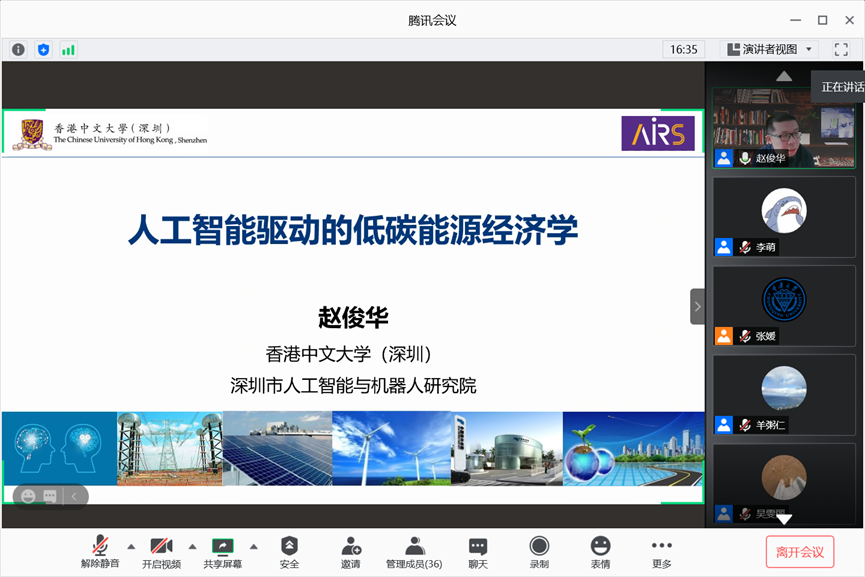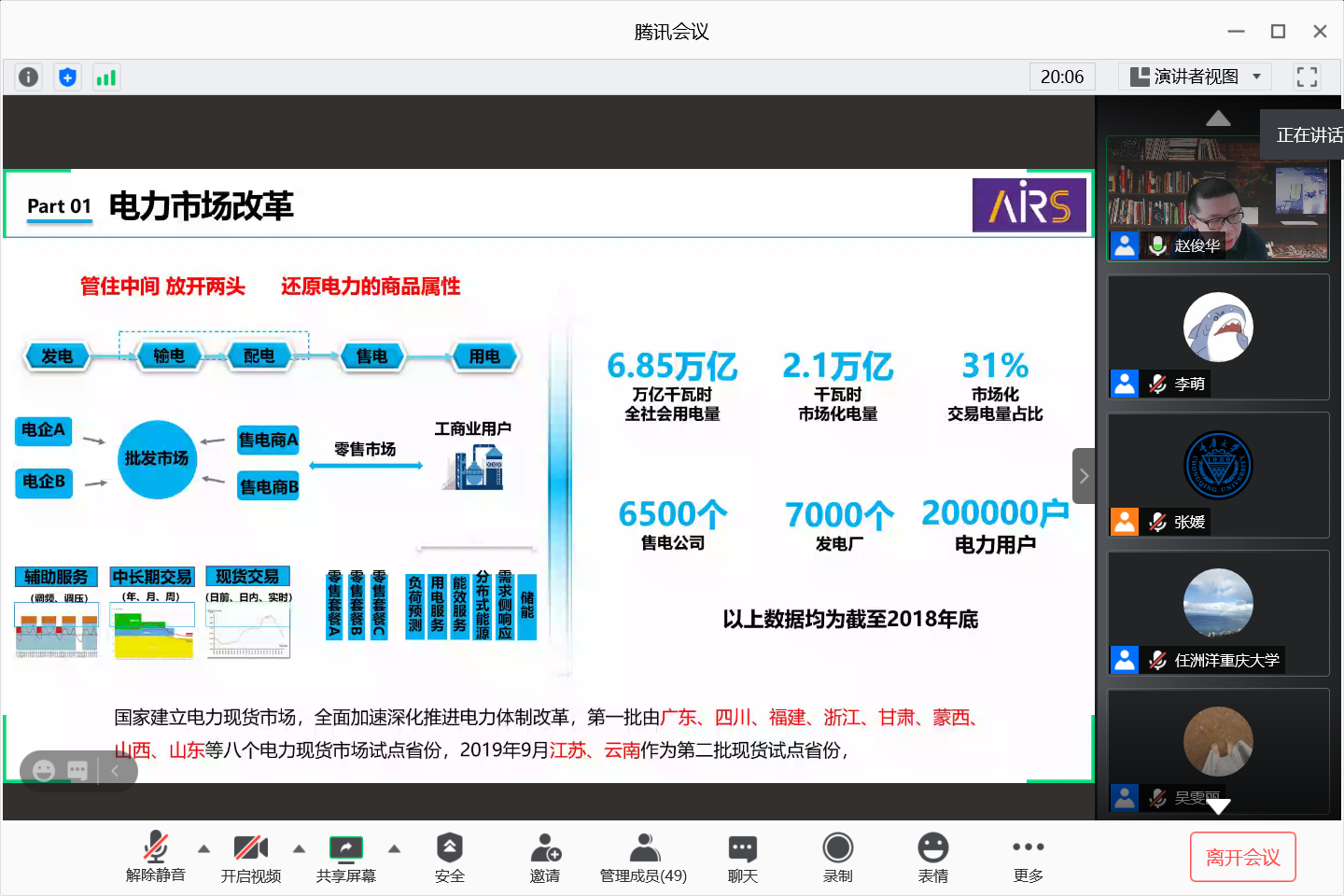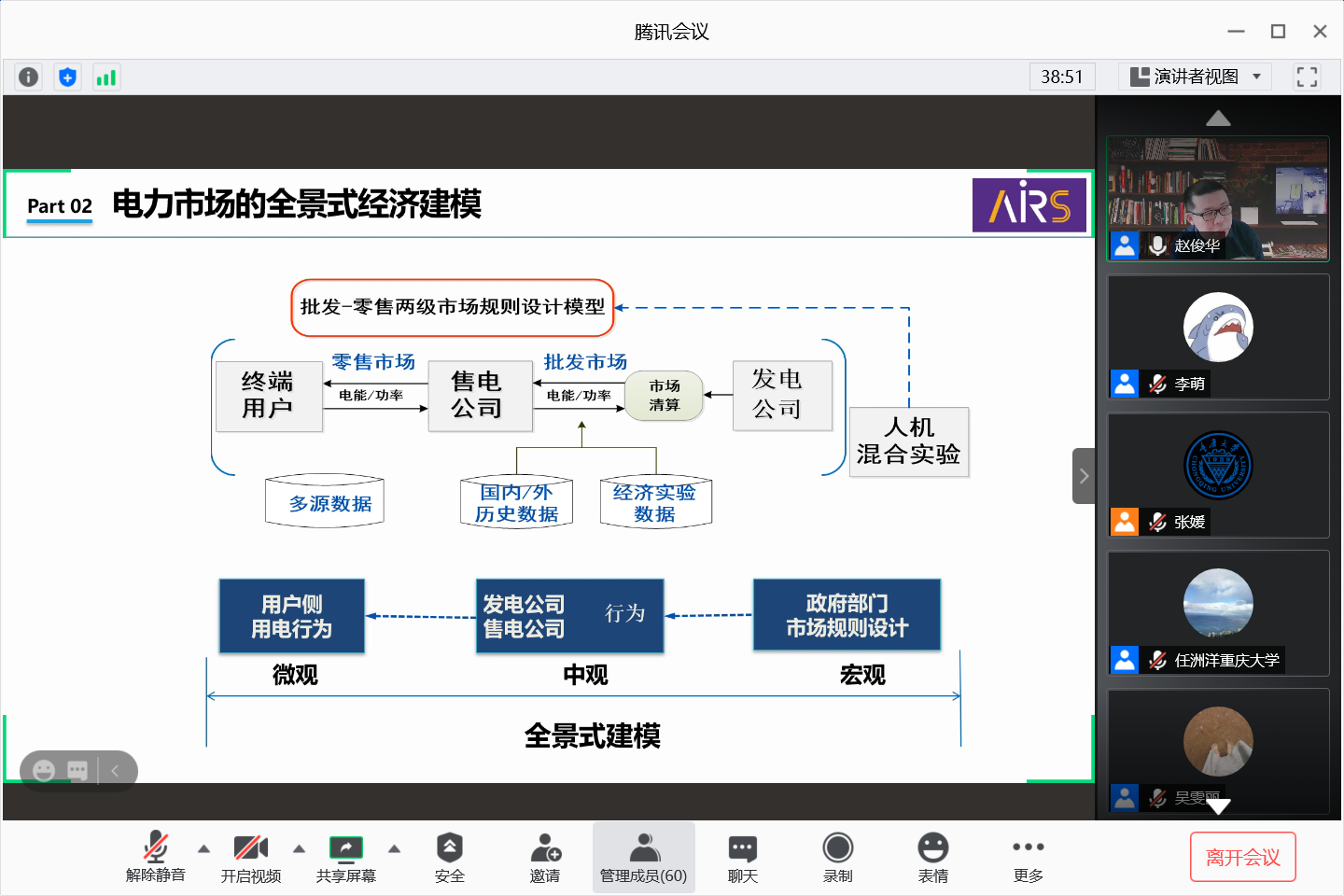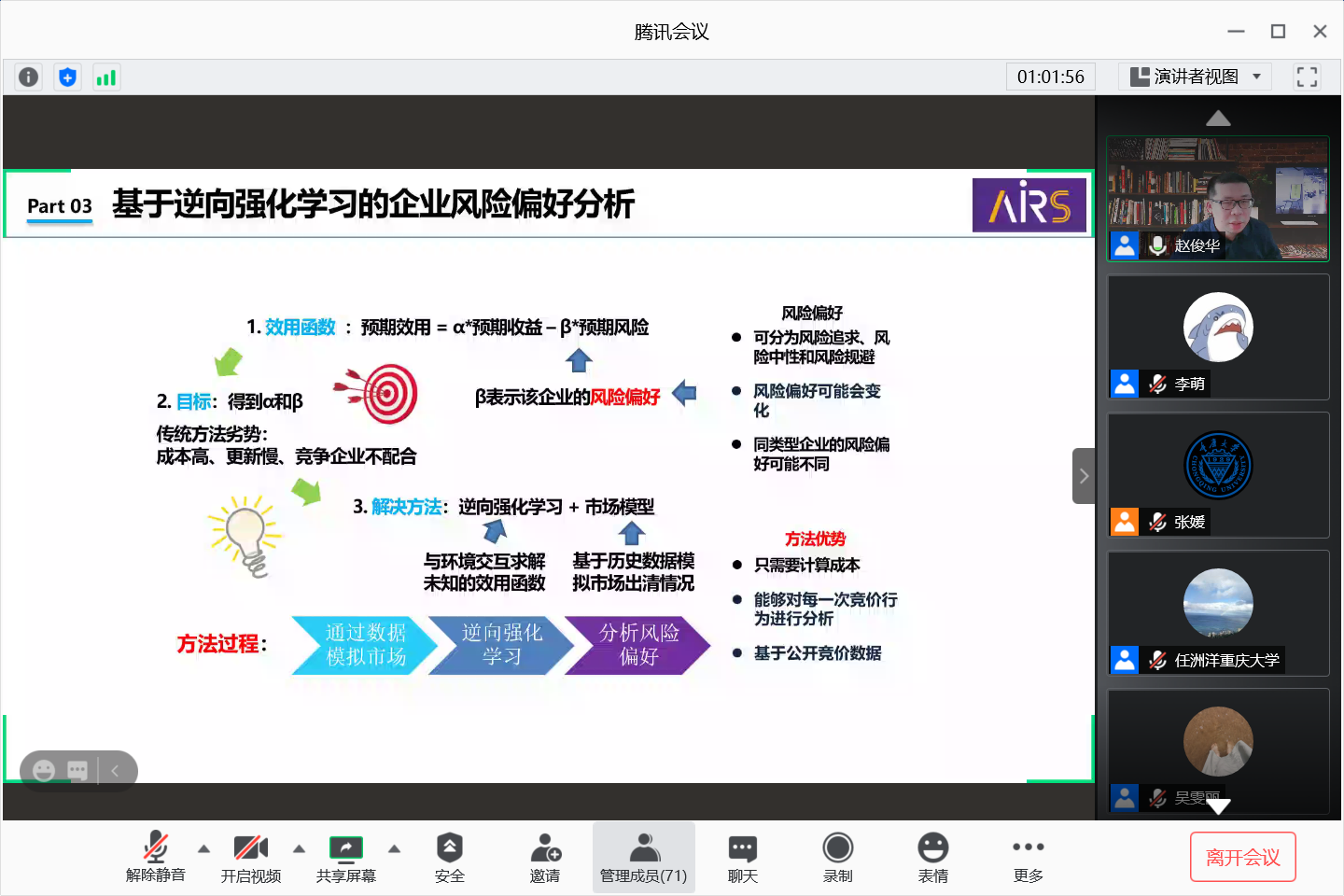On May 30, 2021, Associate Professor Zhao Junhua, Assistant Dean of the School of Science and Technology, Chinese University of Hong Kong (Shenzhen), Director of Energy Market and Energy Finance Laboratory of Shenzhen Advanced Finance Research Institute, was invited to "Online Lecture Hall" to deliver a lecture on "Low Carbon Energy Economics Driven by Artificial Intelligence". Professor Ren Zhouyang, assistant dean of School of Electrical Engineering, Chongqing University, hosted this event. Over 70 students and faculty members attended the lecture.

On behalf of the school, Professor Ren greeted Professor Zhao Junhua and briefly introduced his research areas.
First of all, Prof. Zhao introduced artificial intelligence as a way of guiding the economic means of reducing China's carbon emissions. Prof. Zhao then discussed how AI technology can be used to achieve low-carbon transformation of power systems, and discussed several key topics, such as understanding user behavior, measuring real-time emissions of enterprises, and predicting market trading behavior, and proposed new models and new ideas to address each issue.

Additionally, Prof. Zhao described in detail the algorithm principles and the model architecture for students, as well as practical applications of these principles in power systems, including real-time carbon emission assessment and low-carbon real-time scheduling frameworks in data centers, and simulations of offshore wind power markets, etc.

In the final Q&A session, Prof. Zhao patiently answered students' questions about the application of AI technology to power systems. He briefly explained how integrated energy systems could achieve the dual carbon goal, and discussed with the participants how to quantify the dual carbon goal practically.
